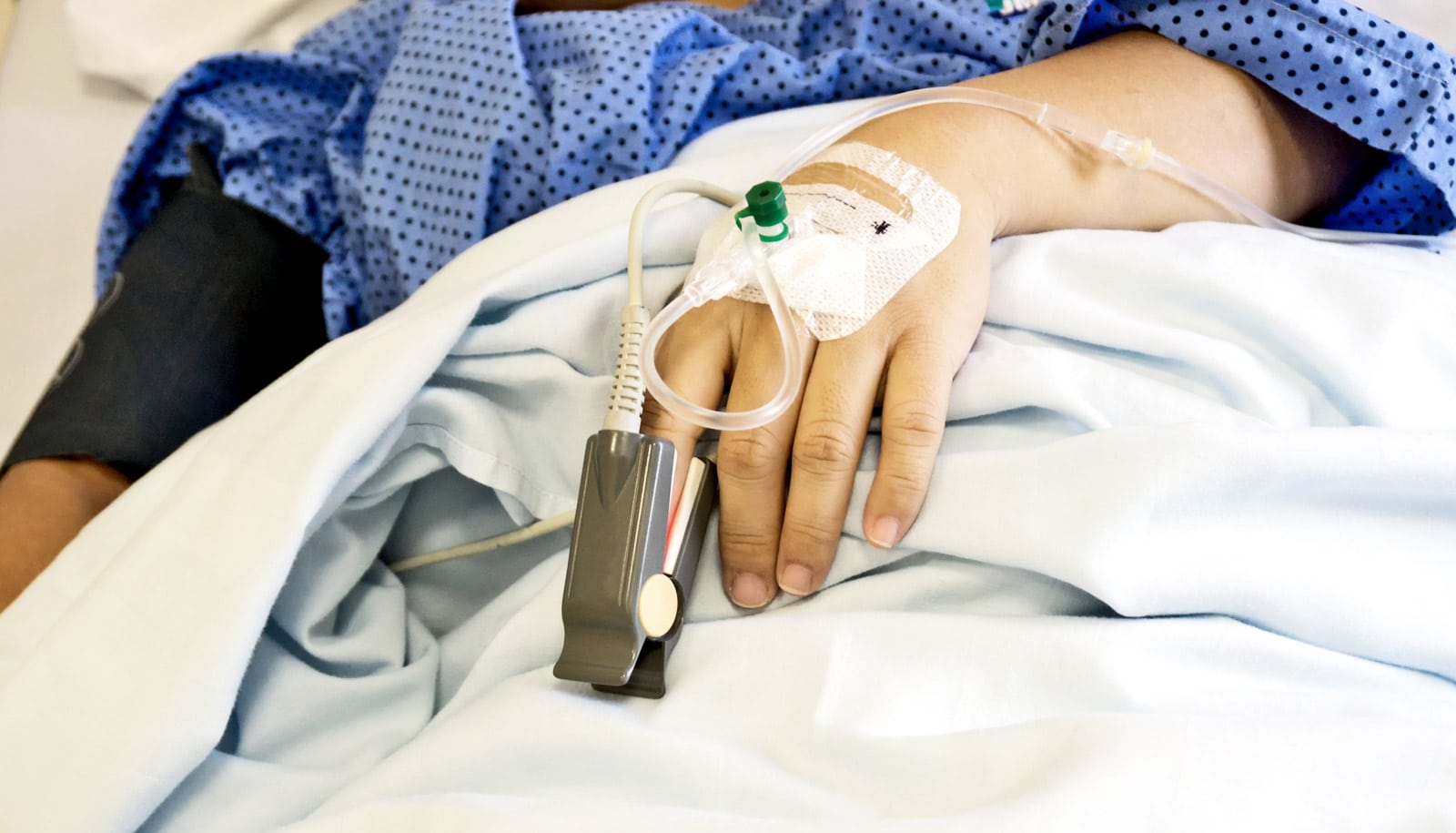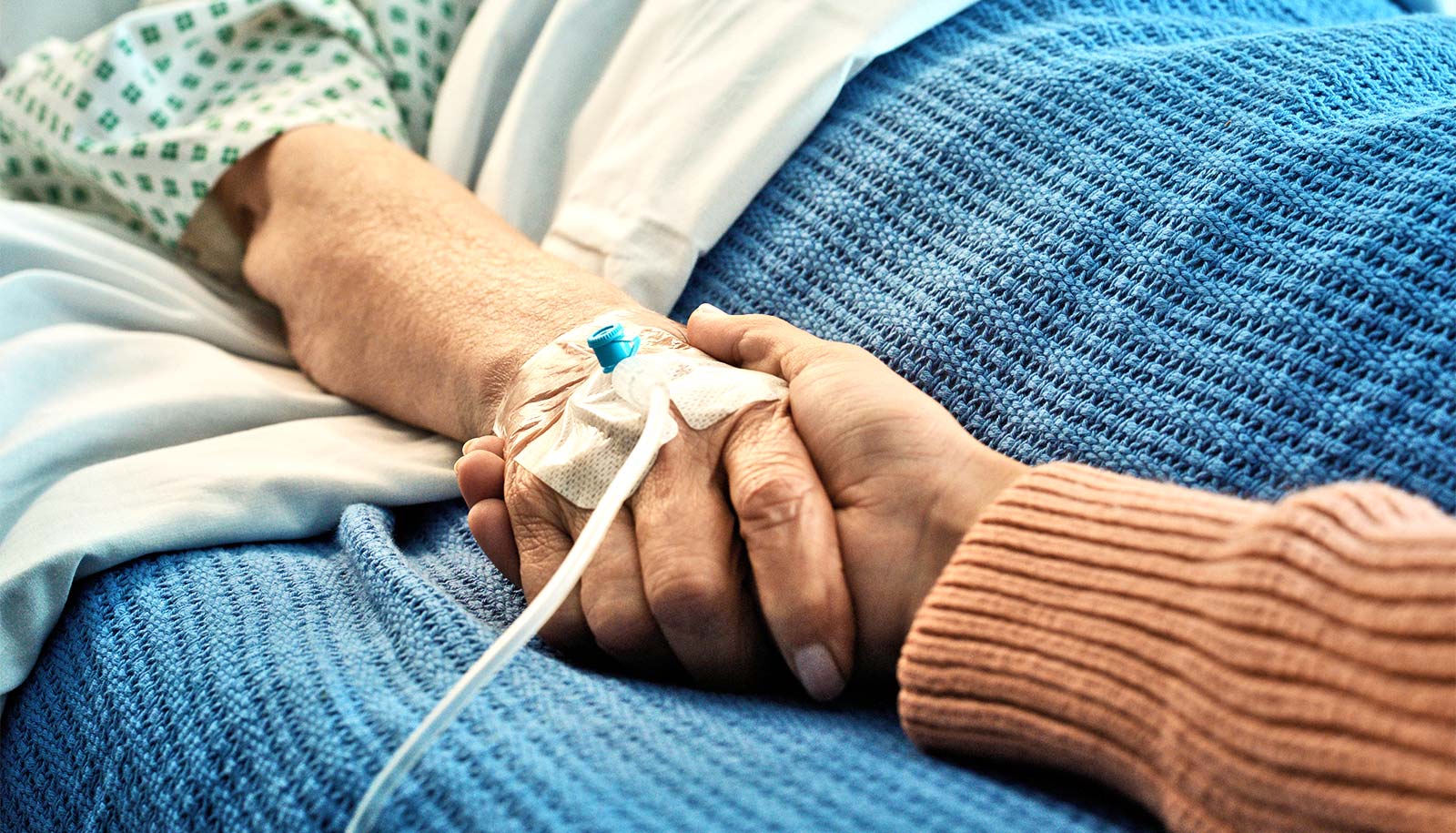A drug that revs up the immune system may hold promise for treating sepsis, a small clinical trial shows.
The approach goes against the grain of earlier strategies that have relied on antibiotics and inflammatory medications to tamp down the immune system.
“Mortality rates from sepsis have remained essentially the same over the last 50 years,” says senior investigator Richard S. Hotchkiss, a professor of anesthesiology, medicine, and surgery at Washington University in St. Louis.
“Hundreds of drugs have been tried and have failed. It may sound counterintuitive when inflammation is such a problem early in sepsis, but our approach is to stimulate certain immune cells to help the patient’s system take control of the infection.”
Hear Hotchkiss explain the findings:
As reported in JCI Insight, the trial involved 27 sepsis patients, ages 33 to 82, who were treated at Barnes-Jewish Hospital in St. Louis, Vanderbilt University Medical Center in Nashville, or two medical centers in France—Dupuytren University Hospital in Limoges and Edouard Herriot Hospital in Lyon.
Although the study was too small to see a statistical benefit in mortality, the researchers noted an improved immune response in patients who were given a drug to beef up their immunity.
The patients were treated with a drug made of interleukin-7 (IL-7), which enhances the proliferation and survival of two types of immune cells: CD4 and CD8. These cells are important because they recruit other immune cells to fight severe infections that can lead to organ failure and death.
“Patients who develop the most serious form of sepsis, called septic shock, often have very low counts of these key immune cells,” says co-investigator Edward R. Sherwood, a professor of anesthesiology at Vanderbilt. “We believe that could play a role in the development and course of sepsis because without those cells, patients aren’t able to clear as much harmful bacteria.”
The patients in the trial, who were hospitalized and severely ill with septic shock, were randomly assigned to one of two therapies. Seventeen patients received the IL-7 drug, and 10 received a standard treatment. Those who received the drug experienced a threefold to fourfold increase in CD4 and CD8 counts.
“Even though the study was small, we were encouraged that IL-7 helped restore key cells in the immune systems of these patients,” says coauthor Andrew H. Walton, a staff scientist in the Hotchkiss lab. “Overall, that should help improve patient survival.”
Speedy treatment of sepsis can save lives
The researchers showed that IL-7 boosts adaptive immunity, in which CD4 and CD8 T cells help recruit other immune cells—called macrophages, monocytes, neutrophils, and dendritic cells—to kill bacteria that cause infections.
Traditional approaches to sepsis therapy don’t address the critical problem of patients’ severely compromised immune systems. Without restoring immune function, many patients develop lingering infections and are helpless to fight any new infections, Hotchkiss says.
“We know that 40 percent of patients die in the 30- to 90-day period after the initial septic infection. Their bodies can’t fight secondary infections, such as the blood infections and staph infections that can develop later on because their immune systems are shot. By strengthening adaptive immunity with IL-7 and increasing the numbers of CD4 and CD8 cells available to help fight infections, we think this approach can make a big difference.”
Hotchkiss credits recent approaches to cancer treatment as evidence that this strategy for sepsis therapy may be a game changer for many patients. Several cancer researchers have begun using IL-7 to rev up a patient’s own immune system to fight cancer. In addition, under compassionate-use guidelines, IL-7 has been given to some critically ill patients with serious viral infections and has successfully restored their CD4 and CD8 counts while improving survival.
Algorithm targets patients at risk for sepsis
As a next step, Hotchkiss and Sherwood are planning a larger trial to determine whether the same holds true for sepsis patients. They estimate a study involving 300 to 400 patients should have the statistical strength to determine whether IL-7 can improve survival rates.
The National Institutes of Health and Revimmune, manufacturer of the recombinant human IL7 drug, supported the work.



